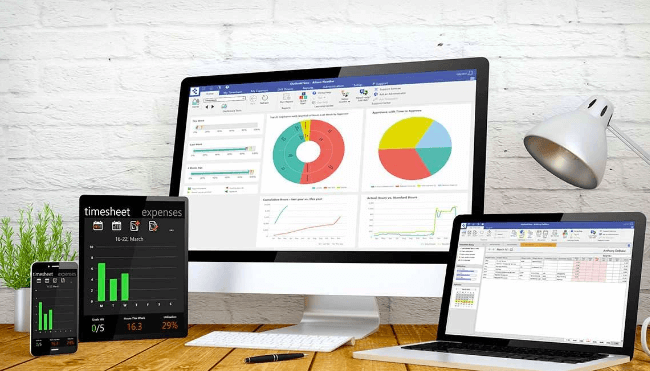Maximizing Efficiency and Accountability with Outlook Timesheets

Introduction:
In today’s fast-paced and competitive business environment, efficient time management is crucial for success. Companies strive to optimize productivity and ensure accountability in their workforce. One effective tool for achieving these goals is the Outlook timesheet. Leveraging the familiar interface of Microsoft Outlook, this tool enables employees to track their time effectively, providing insights for both individuals and management. In this article, we delve into the benefits and functionalities of Outlook timesheets, exploring how they streamline operations and enhance organizational efficiency.
Streamlining Time Tracking:
Traditional methods of time tracking often involve manual processes prone to errors and inefficiencies. With Outlook timesheets, however, this cumbersome approach is replaced with a streamlined and automated system. Integrated seamlessly within the Outlook interface, employees can log their time directly from their email client, eliminating the need for separate time-tracking applications. This integration enhances user adoption and simplifies the tracking process, ultimately saving valuable time and resources.
Enhancing Accountability:
Accountability is essential for fostering a culture of responsibility and transparency within an organization. Outlook timesheets serve as a powerful tool for promoting accountability among employees. By accurately recording the time spent on various tasks and projects, individuals can showcase their contributions and demonstrate their commitment to organizational goals. Moreover, managers gain visibility into employee activities, enabling them to monitor progress, allocate resources efficiently, and address any issues promptly. This enhanced accountability fosters a culture of trust and collaboration, driving overall performance and success.
Improving Project Management:
Effective project management relies on timely and accurate tracking of resources, tasks, and milestones. Outlook timesheets play a crucial role in this aspect by providing real-time insights into project progress and resource allocation. Project managers can easily monitor the time spent by team members on specific tasks, identify bottlenecks, and adjust priorities accordingly. Additionally, the integration of timesheets with Outlook’s calendar feature allows for seamless scheduling and coordination of project activities. By centralizing project-related information within the familiar Outlook environment, teams can collaborate more efficiently and ensure project success.
Optimizing Resource Allocation:
Resource allocation is a key determinant of project success, requiring careful planning and optimization of available resources. Outlook timesheets facilitate this process by providing valuable data on resource utilization and availability. Managers can analyze timesheet data to identify underutilized resources, redistribute workloads, and allocate resources more effectively. Moreover, the ability to track billable hours enables organizations to accurately invoice clients and optimize revenue generation. By leveraging the insights provided by Outlook timesheets, companies can make informed decisions regarding resource allocation, ultimately maximizing productivity and profitability.
Facilitating Performance Evaluation:
Performance evaluation is essential for identifying strengths, areas for improvement, and training needs within an organization. Outlook timesheets offer a valuable tool for assessing employee performance objectively. By comparing planned versus actual hours spent on tasks, managers can evaluate individual and team productivity accurately. Furthermore, timesheet data provides valuable insights into employee efficiency, work habits, and time management skills. This information forms the basis for constructive feedback, goal setting, and performance enhancement initiatives. By leveraging Outlook timesheets for performance evaluation, organizations can nurture talent, drive continuous improvement, and achieve their strategic objectives.
Conclusion:
In conclusion, Outlook timesheets represent a powerful tool for enhancing efficiency, accountability, and productivity within organizations. By streamlining time tracking, improving project management, optimizing resource allocation, and facilitating performance evaluation, they enable companies to achieve their goals effectively. With seamless integration into the familiar Outlook interface, timesheets encourage user adoption and simplify the tracking process. As businesses continue to prioritize efficiency and accountability, Outlook timesheets emerge as indispensable tools for driving success in the modern workplace.





